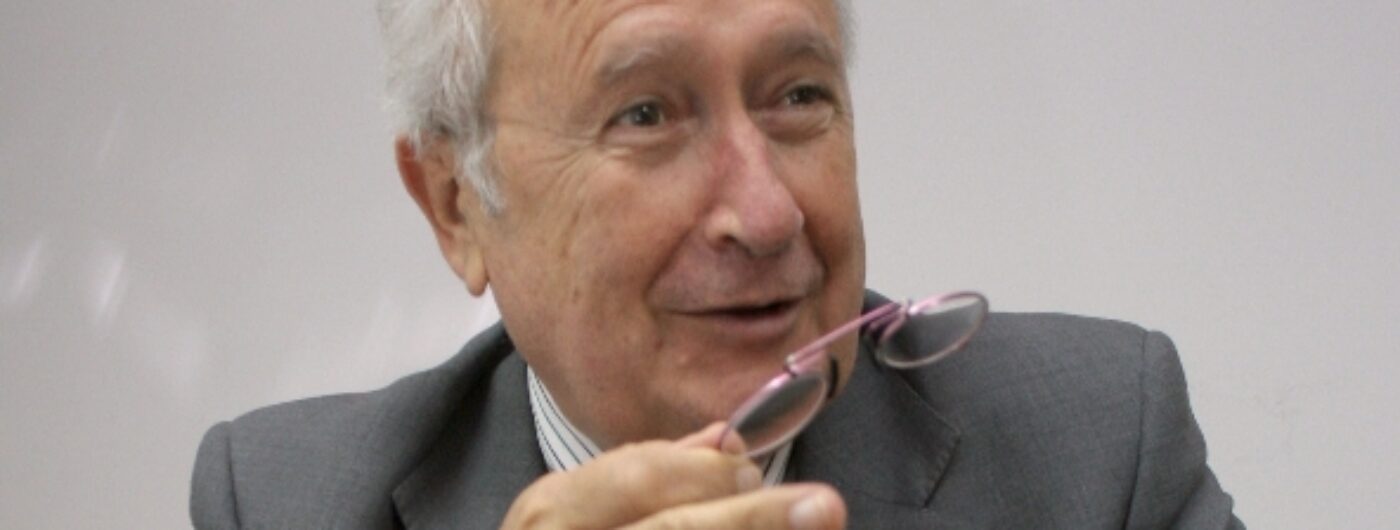
UfM interviews Prof. Franco Rizzi
UfM: In your opinion, what are the main challenges and needs of Southern Mediterranean Universities? How do you think these have evolved since the creation of UNIMED in 1991?
Prof. Franco Rizzi (FR): The main problems of Universities are Training, Research and an adequate number of scholarships for students and researchers in order to increase their mobility. These are the needs of Southern Mediterranean Universities and, in some way, of all Universities in Europe. There are features belonging only to the Universities of the South and that is the reason why UNIMED was created: Thanks to this network, we contribute to enhancing exchanges among universities, and within this framework, the Universities of the Southern shore of the Mediterranean have a significant role.
UfM: Do you think that the Bologna Process can be adapted in the Southern Mediterranean to achieve greater integration, cooperation and exchanges between universities? How does UNIMED contribute to this?
FR: I think that the Bologna process is very important to achieve greater integration, cooperation and exchanges between higher education institutions. I could mention many examples regarding the role played by UNIMED in this sense and I would like to point out that UNIMED is also a tool for the realization of the purposes of the Bologna Process promoting, for example, the development of Joint Degrees by putting universities which have already gained experience – within the framework of 3+2 for example – in contact with others institutions that are still approaching this path.
UfM: Where do we stand in the process of achieving a “Euro-Mediterranean Higher Education Area”?
FR: I think there is a lack of policies in the European Commission about the creation of a “Euro – Mediterranean Higher Education Area”. After the “Catania Meetings” of 2003 no policies have been defined in order to make operational the general principles adopted by the Higher Education Area Ministers. The Arab uprisings indeed demand a new approach for which the European Union is not yet prepared. An example is the enhancing of “Distance Learning” technologies between the two shores of the Mediterranean region.
UfM: How can Southern Mediterranean Universities contribute to the democratization of their countries?
FR: The role of Universities of the Southern Mediterranean, such as the role of students and youth, has been pivotal within the uprisings of the last two years. In my opinion, the process is still in progress and we need to consider the transition as a mid and long-term process. Within this framework universities carry out a role of noteworthy importance because they are considered “Places of dialogue and political expressions”.
UfM: In Europe and in Southern Mediterranean countries there are high rates of unemployment among university graduates. Do you believe that Universities are doing enough for students to facilitate their integration into the labour market? If not, what can be done?
FR: I think this is a key problem for the role that universities must play and I am convinced there is an institutional lack, because relations among universities and the job world are still weak. I think that universities should build an “institutionalized way” which will be more able to open a dialogue among institutions and the world of work, as they have already done in some cases, and this action does not require the abdication of their own autonomy. In a true knowledge society, where higher education becomes a necessity for almost half the population, universities can no longer act as an entirely independent academic force. They must turn an increasing proportion of their activity into the needs of students whose employability is at stake, and towards the needs of society at large. In Europe, synergy between enterprising forces and educating forces has become an aim of seemingly ever-increasing importance. This need to align education to the needs of the economy is no different in the countries surrounding the EU. With increasing concerns about competitiveness and employment in the Southern Mediterranean, governments and the private sector have indeed underlined the importance of strategic development of the region’s human capital, thus particular attention has been given to entrepreneurial learning and improving skills within enterprises. In order to be successful, cooperation between tertiary education and its enterprising environment must be mutually beneficial. Universities must recognise the need to engage closely with the environment in which their students will find employment. Enterprises also need to recognise the added value of such partnerships for themselves. When designing partnership strategies, universities need to take this aspect into account.
UfM: How do you foresee the future collaboration between UNIMED and the UfM Secretariat in creating synergies that will enhance collaboration between Northern and Southern universities?
FR: The work of the UfM Secretariat is undeniably important, also considering it within the political difficulties in which the organization itself stands. UNIMED supports this action because it believes that its energy could lead to some tangible outcomes. Our exchanges include many fields of interest; they could be focused on the organization of International Masters oriented to the world of work, such as Training courses addressed to Syrian Political Refugees, or also defining appropriate policies aimed at enhancing North-South and South-South mobility of students. These are just some fields in which we already start our collaboration with UfM.

